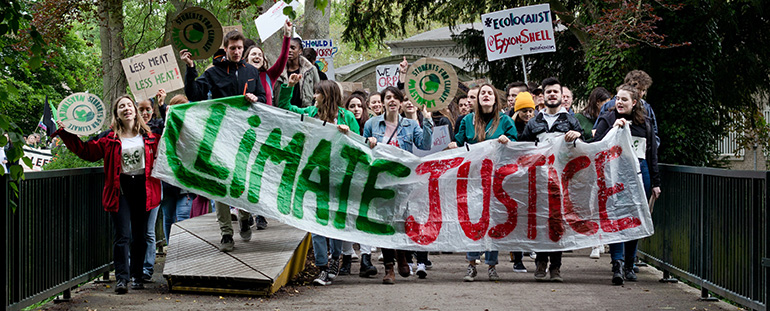
By Anne Kammer
“Cooperative federalism” is a touchstone principle of environmental regulation in the United States. From the adverse effects of air pollution to those of surface coal mining operations and the discharge of pollutants into navigable waters, states have a critical role in protecting the environment through the administration and enforcement of federal regulations. States also have the power to combat climate change directly through their own climate action plans, legislation, and regulatory schemes. Collaboration may inevitably give way to conflict if the environmental policy goals of the federal government and the states are not in sync. Disputes may arise as a result of differing enforcement priorities, inconsistent statutory schemes,
or regulatory change. In such instances, federalism poses certain challenges for the states in the form of the preemption doctrine and the dormant commerce clause. However, states are not without recourse in their pursuit of clean air, clean water, and an elevated quality of life for their citizens.
As the Supreme Court recognized in Massachusetts v. EPA, 549 US. 497 (2007), states have a “well-founded desire to preserve” their “sovereign territory” from the “harms associated with climate change.” With this aspect of climate-based standing settled, states have a powerful weapon in their arsenal to fight against the harmful impacts of climate change: litigation. And California is leading the current charge to the courthouse.
California, acting through its Attorney General, has the authority “to act to protect the natural resources of the State of California from pollution, impairment, or destruction.” Pursuant to this authority, California has sued the federal government dozens of times over the past several years challenging the current administration’s environment and energy policies. According to the State of California Department of Justice, if Attorney General Xavier Becerra “can work cooperatively with the federal government to protect the environment and public health, he’ll do so, but where the federal government becomes an obstacle, he won’t hesitate to sue. The stakes are simply too high.” Recent deregulation efforts by the federal government have raised the stakes even further; the Attorney General views these efforts as “rollbacks in protections of the environment and public health” and true to his word, California has not hesitated to sue.
For example, California sued the U.S. Department of the Interior and Bureau of Land Management in order to prevent the opening of more than 1 million acres of public lands in Central California to oil and gas drilling. California sued the U.S. Department of Energy, challenging a final rule that rolls back energy efficiency standards for light bulbs. California has sued the U.S. Environmental Protection Agency (EPA) multiple times, seeking to compel implementation of a federal regulation designed to limit methane emissions at landfills, demanding tougher regulation of asbestos, and challenging the weakening of air toxics compliance requirements for cement plants. California and other states have sued to enjoin the EPA from implementing a final rule narrowing the definition of “waters of the United States.” According to the Attorney General, the rule would remove protections for all ephemeral streams, many wetlands, and other waters that were previously covered under the Clean Water Act. California is also leading a multistate challenge to an EPA policy which allows the agency to curtail civil enforcement of numerous environmental regulations and statutes during the coronavirus public health emergency.
In addition, California, on behalf of a multistate coalition, sued the federal government challenging the Safer Affordable Fuel-Efficient (SAFE) Vehicles Rule, issued by the U.S. National Highway Traffic Safety Administration and the U.S. Environmental Protection Agency. California views the rule as an improper and unlawful rollback of the nation’s Clean Car Standards, which require improvements in fuel economy and reductions in greenhouse gas emissions from passenger cars and light trucks.
And California’s environmental litigation strategy is not limited to the courts. California has also been active at the agency level, while defending against challenges to its own climate change program. Those keeping track agree that, so far, California has enjoyed more than a modicum of success in all venues.
Anne Kammer (akammer@sandiego.edu) is a career law clerk for a federal judge and an adjunct professor at the University of San Diego School of Law.